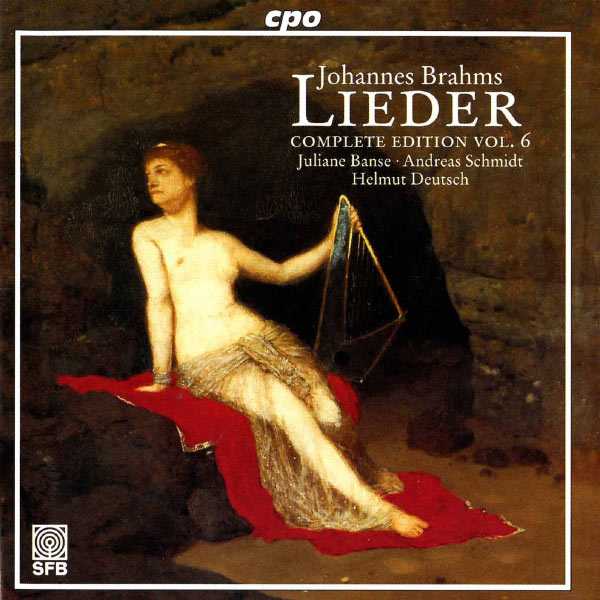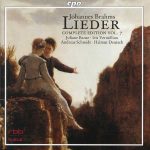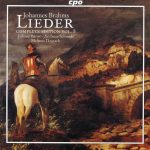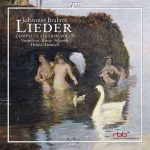
Composer: Johannes Brahms
Performer: Juliane Banse, Andreas Schmidt, Helmut Deutsch
Format: FLAC (tracks)
Label: CPO
Catalogue: 9994462
Release: 2000
Size: 204 MB
Recovery: +3%
Scan: cover
9 Gesänge, op. 69
01. No. 1. Klage I (Lament I)
02. No. 2. Klage II (Lament II)
03. No. 3. Abschied (Adieu)
04. No. 4. Des Liebsten Schwur (My Beloved’s Oath)
05. No. 5. Tambourliedchen (Little Drum Song)
06. No. 6. Vom Strande (From the Strand)
07. No. 7. Uber die See (Across the Sea)
08. No. 8. Salome
09. No. 9. Madchenfluch (A Maiden’s Curse)
4 Gesänge, op. 70
10. No. 1. Im Garten am Seegestade
11. No. 2. Lerchengesang
12. No. 3. Serenade
13. No. 4. Abendregen
5 Gesänge, op. 71
14. No. 1. Es liebt sich so lieblich im Lenze!
15. No. 2. An den Mond
16. No. 3. Geheimnis
17. No. 4. Willst du, dass ich geh?
18. No. 5. Minnelied
5 Gesänge, op. 72
19. No. 1. Alte Liebe
20. No. 2. Sommerfaden
21. No. 3. O kuhler Wald
22. No. 4. Verzagen
23. No. 5. Unuberwindlich
Of all the leading composers of Lieder, Brahms suffers more than any other through neglect, with so little of his output in the field ever appearing on recital programmes. There’s some reason for this, given that his contribution to the genre is uneven, as you can judge listening to the uninspired settings of minor poets comprising Op 69. but just when you think the composer might have been on auto-pilot in his songs of the mid-1870s, along come the four pieces of Op 70 to make you revise your opinion. The impressionistic ‘Lerchengesang’, the reflective ‘Serenade’ and the better-known ‘Abendregen’, all show the composer in his most imaginative mode, alive to words and their inner meaning.
The inspiration is more intermittent in Opp 71 and 72, but the better of the songs here – the Hölty ‘Minnelied’ and Bretano ‘O kühler Wald’ – rank with the finest in Brahms’s output.
Both Banse and Schmidt are at their appreciable best as regards voice and interpretation, Banse always inside her readings, Schmidt producing tone that’s consistently warm and appealing. She alternates convincingly between passion and lighter emotions. He’s particularly well suited by the whole of Op 72, giving a nicely ebullient account of ‘Unüberwindlich’, a Goethe setting that ends the programme. Deutsch is fully up to the exigent demands of the piano parts, often almost like solos in themselves.



